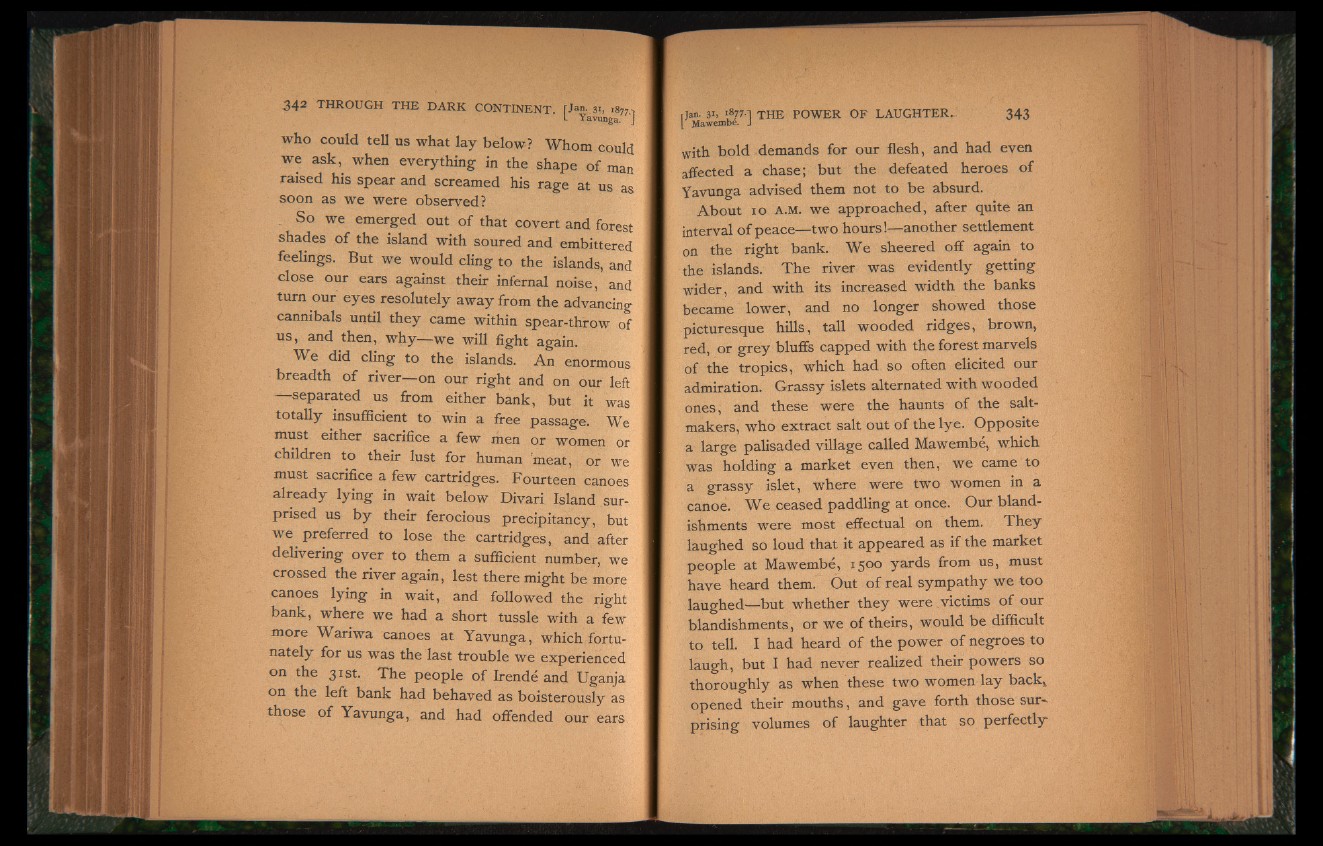
who could tell us what lay below? Whom could
we ask, when everything in the shape of man
raised his spear and screamed his rage at us as
soon as we were observed?
So we emerged out of that covert and forest
shades of the island with soured and embittered
feelings. But we would cling to the islands, and
close our ears against their infernal noise, and
turn our eyes resolutely away from the advancing
cannibals until they came within spear-throw of
us, and then, why— we will fight again.
We did cling to the islands. An enormous
breadth of river— on our right and on our left
— separated us from either bank, but it was
totally insufficient to win a free passage. We
must either sacrifice a few men or women or
children to their lust for human meat, or we
must sacrifice a few cartridges. Fourteen canoes
already lying in wait below Divari Island surprised
us by their ferocious precipitancy, but
we preferred to lose the cartridges, and after
delivering over to them a sufficient number, we
crossed the river again, lest there might be more
canoes lying in wait, and followed the right
bank, where we had a short tussle with a few
more Wariwa canoes at Yavunga, which fortunately
for us was the last trouble we experienced
on the 31st. The people of Irende and Uganja
on the left bank had behaved as boisterously as
those of Yavunga, and had offended our ears
rian. 31, 1877-1 THE power of laughter, [ Mawembe. J
with bold demands for our flesh, and had even
affected a chase; but the defeated heroes of
Yavunga advised them not to be absurd.
About xo A.M. we approached, after quite an
interval of peace— two hours!— another settlement
on the right bank. We sheered off again to
the islands. The river was evidently getting
wider, and with its increased width the banks
became lower, and no longer showed those
picturesque hills, tall wooded ridges, brown,
red, or grey bluffs capped with the forest marvels
of the tropics, which had so often elicited our
admiration. Grassy islets alternated with wooded
ones, and these were the haunts of the salt-
makers, who extract salt out of the lye. Opposite
a large palisaded village called Mawembe, which
was holding a market even then, we came to
a grassy islet, where were two women in a
canoe. We ceased paddling at once. Our blandishments
were most effectual on them. They
laughed so loud that it appeared as if the market
people at Mawembe, 1500 yards from us, must
have heard them. Out of real sympathy we too
laughed—but whether they were victims of our
blandishments, or we of theirs, would be difficult
to tell. I had heard of the power of negroes to
laugh, but I had never realized their powers so
thoroughly as when these two women lay back%
opened their mouths, and gave forth those surprising
volumes of laughter that so perfectly